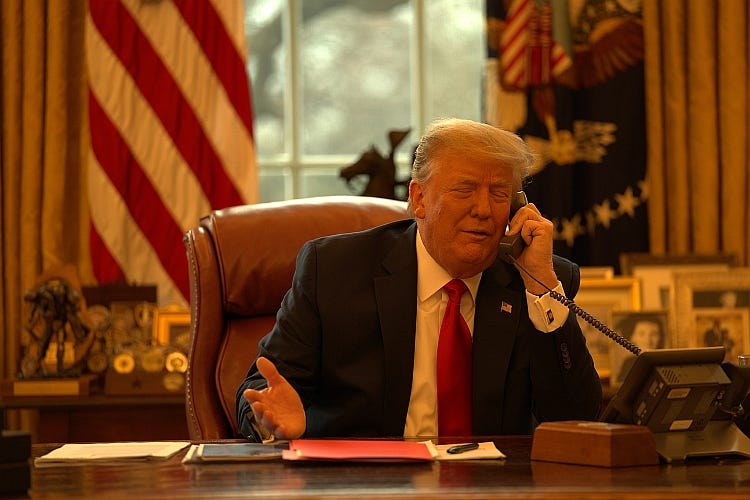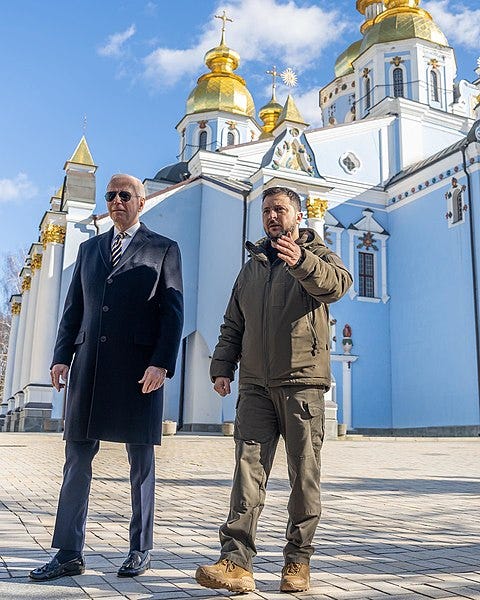DeSantis and Haley Exchange Blows Just Days Before the Iowa Caucus
By Leah Watson and Nikos Biggs-Chiropolos, The Kennedy Beacon
The final Republican presidential primary debate before the Iowa caucuses occurred on Wednesday night, January 10, in Des Moines, Iowa. With former New Jersey governor Chris Christie’s withdrawal and low polling numbers excluding other candidates, last night was a heated face-off between former South Carolina governor Nikki Haley and Governor Ron DeSantis of Florida. It was broadcast live on CNN, moderated by anchors Jake Tapper and Dana Bash.

Before the debate, Christie announced at a town hall meeting in Windham, New Hampshire, that he was withdrawing. Christie’s low polling numbers disqualified him, as well as entrepreneur Vivek Ramaswamy and former Arkansas governor Asa Hutchinson, from attending the debate. These three candidates failed to receive 10% “in three separate national and/or Iowa polls of Republican caucus-goers or primary voters,” according to ABC News.
Former president Donald Trump, although meeting the polling qualifications, chose not to attend and instead scheduled himself to appear in a town hall meeting on Fox News at the same time as the debate. Haley and DeSantis called Trump out for once again skipping a debate, demanding he be held accountable for the promises he has not fulfilled.
While Haley and DeSantis are both longshot candidates for the Republican nomination, they have received extensive media coverage by participating in primary debates. Meanwhile, both the Democratic and the Republican frontrunners – Trump and Biden – have controversially refused to take part in any debates during this election cycle. Despite abstaining, their polling numbers remain high.
Haley and DeSantis generally agreed on many topics, but they spent a great deal of time attacking each other, rather than Trump, or their would-be general election opponents Biden and Robert F. Kennedy Jr. They also agreed in moments of criticism about Trump, but otherwise tried to go after each other’s voting records or past public statements, each accusing the other of being insincere or contradicting their campaign positions or past actions. Haley in particular took an offensive tone, bringing up an anti-DeSantis website that her campaign launched (desantislies.com) almost every time she spoke throughout the two-hour spectacle.
On multiple occasions, Haley said that she wished Trump were standing on the debate stage so that he could address the January 6 capitol attack. “He said Jan 6 was a beautiful day, I think January 6 was a terrible day,” she said. “I think President Trump will have to answer for it.” She also criticized Trump for not admitting that he lost the 2020 election.

The debate turned to foreign policy and international conflicts. When asked about the Russia-Ukraine war, Haley declared that “dictators always do what they say they’re going to do” and issued a warning that Russia will not stop with Ukraine. “Once they take Ukraine, Poland and the Baltics are next, those are NATO countries, and that puts America at War.… If we support Ukraine, that’s only 3.5% of our defense budget.” She stressed that the United States should be friendly with the right countries so that they have our back when needed. “This is about keeping Americans safe, this is about preventing war,” said Haley. She accused the Biden administration of spreading lies and making it seem as though the United States must choose between Ukraine and Israel. “If we support Ukraine and Israel, that’s only 5% of our defense budget,” said Haley, as if bargaining for US support of the conflicts.
DeSantis retaliated, saying that Haley has no solution for ending the Russia-Ukraine war except for bringing Ukraine into NATO, a move that would escalate the war and force the direct involvement of the US. He expressed concern about the amount of money flowing into Ukraine from the US, blasting Haley’s support for sending 106 billion dollars to pay Ukrainian government bureaucrats’ salaries and pensions for Ukrainian retirees. He suggested that this money instead be spent on the US and its internal issues – something for which Kennedy also has advocated.

Haley’s retort (once again plugging desantislies.com) refuted the idea that she ever supported giving salaries or benefits to Ukrainians. “I did not support the aid package, I support equipment and ammunition going to Ukraine,” she said.
Following these foreign policy statements, the candidates also reaffirmed their common support for Israel, both DeSantis and Haley agreeing that the United States must trust Israel’s judgment and provide all the support required to “eliminate Hamas once and for all.” When one of the moderators asked if he supports the mass removal of Palestinians from Gaza, DeSantis stated that he would support Israel’s decision to do so if they make the calculation that it is needed in order to avoid a second Holocaust. Neither candidate mentioned that Israel faces charges of genocide against Palestinians in the International Court of Justice this week.
Another topic the two candidates spoke about was education. The moderators opened up the topic with a statistic from the US Department of Education, stating that in 2017 (the year Haley left office) South Carolina ranked in the bottom 10 states nationwide in reading and math scores. Haley stated that her solution is to bring federal programs to the state level and to allow parents to be more involved in their children’s education. She went on to say that she believes that there should be transparency for parents, and they should be allowed to determine what educational mode will be best for their child, because “parents know their children best.”
DeSantis attacked Haley in response, stating that she had failed to implement “School Choice” and instead caved to the teachers’ union, whereas he had “delivered the biggest School Choice expansion in the history of the United States” and “beat the teachers’ union.” He claimed that Florida has top-performing students because they had a strong leader to bring them there. By criticizing her inability to deliver School Choice to her state, DeSantis brought into question Haley’s leadership abilities, saying, “If you can’t do it in the reddest state of South Carolina, how are you going to be able to succeed in Washington, DC?”
Haley defended herself by saying that she has always supported School Choice, but that the Republican legislature of South Carolina wouldn’t allow it. She had instead improved education in the state through other means, including passing charter school legislation, empowering homeschoolers, and changing “the funding formula [that] lifted up challenged areas without bringing down the wealthy areas.”
The two then debated retirement age, with DeSantis affirming his support for seniors living in his state and saying that those who have paid into Social Security have been expecting a return and that he intends to deliver on the promises made to them. He echoed some points that Kennedy has made in his campaign, including on rising grocery prices, saying that seniors who rely on Social Security are already strapped for cash, and opining that reforming the system or raising the retirement age would be unfair in this economy.
Haley seemed more willing to change the status quo, talking about Medicare and Social Security being at risk of going bankrupt soon and claiming that seniors in Florida are at risk because the state is an “inflation hotspot.” When pressed by moderators, she said that voters who are currently in their twenties should plan on their retirement age being increased from what it is now – saying she would base it on greater life expectancy.
When asked about health care, Haley asked, “how can we be the best country in the world with the most expensive health care in the world” and called for companies to open their books so that the government can determine the real costs of treatments. DeSantis brought up mental health, saying “everyone is concerned” about it – from students to veterans – and Haley agreed, citing one in three Americans having mental health concerns today.
The candidates also brought up the COVID-19 response as a chief cause of the problem, with DeSantis calling it an “authoritarian regime” and Haley saying that anxiety, stress, and depression levels are higher than ever since the lockdowns. Both of them echoed points that Kennedy has been making about the COVID pandemic since its beginning, yet DeSantis hammered Haley for not having pushed back while the lockdowns were happening, while claiming he was “on the front lines” fighting back “against the biomedical state” and attacks from the medical bureaucratic establishment. Nevertheless, he avoided admitting that he, too, supported lockdowns in the beginning.
On the topic of health care, the two expressed a shared disdain for China, saying our pharmaceutical industry is too reliant on China for manufacturing. Neither talked about the root causes of the issue, such as our country’s increasing reliance on medications.
The candidates were also asked about their positions on climate change. The moderators brought up issues such as 2023 having been the hottest year on record, threats to Iowa farmers, and rising sea levels diminishing coastlines. Haley started her response by making an uncontroversial point that everyone wants clean air and water, then asking how we get there. Neither candidate seemed to offer many answers to that question, except when agreeing again that China should be blamed.
DeSantis began his response by saying he would put Biden’s Green New Deal policies in the trash can on his first day in office and then illuminated numerous examples of Democrat hypocrisy, such as John Kerry flying private jets and Barack Obama having a seaside mansion while they claim that more needs to be done to address carbon emissions. DeSantis then said that Green New Deal policies destroy smaller communities, such as those in Iowa. He summarized his position by saying, “China is the problem here, and so we need to hold them accountable,” rather than the American people.
Haley agreed and took credit for the US leaving the Paris Agreement while she was ambassador to the United Nations, giving the justification that the US wasn’t standing up to China enough. She also talked about the Biden administration’s promotion of electric cars while lacking proper infrastructure, including charging stations, as well as strong enough bridges and roads because these vehicles are heavier than traditional ones. She also highlighted that most electric vehicle batteries are imported from China.
As this exchange demonstrates, most disagreements in the debate were rather superficial. On the majority of issues, the candidates share largely similar positions that align with the more traditional wing of the Republican Party. Hammering each other on past statements or votes, or on insufficient commitment to current campaign promises, was thus the only way for them to debate each other, since they do not seem to hold major differences of opinion on the most important topics.
This point was epitomized near the end of the night when each candidate was asked to say something they admire about the other, and Haley responded curtly, “I think he’s been a good governor.” The directness of her answer left the moderators looking surprised, as it contradicted the fact that she had spent almost two hours attacking DeSantis’s record.








zero surprise that Haley is a proponent of the 'domino theory' (Russian will not stop at Ukraine, yada, yada, yada.) endless wars mean endless profit for her and her ilk in the military industrial complex. she is without a doubt one of the least qualified people to ever run for president (and that's probably saying a lot). she will be relegated to the garbage heap of history, along side other pandering dingbats like Sarah Palin.
Maybe Haley should be promising to lower the age for Social Security, as life expectancy went down in the past few years.